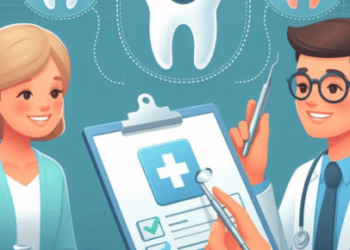
Managing allergies in elderly patients is crucial for their health and well-being. Allergists play a vital role in this process. They help in identifying triggers and creating effective treatment plans. From pollen to food or even insect allergies livonia, proper management can make life more comfortable for seniors. By focusing on prevention and routine care, allergists ensure that elderly patients maintain a better quality of life.
Understanding Common Allergens in the Elderly
Allergens vary from one person to another. Common allergens include pollen, dust mites, mold, pet dander, and certain foods. As people age, their immune systems change, sometimes making them more susceptible to allergies. Identifying specific allergens is the first step in managing allergies effectively.
Symptoms and Challenges
Allergy symptoms in elderly patients might include sneezing, itching, nasal congestion, and skin rashes. Some symptoms can be confused with other conditions common in seniors, like asthma and chronic obstructive pulmonary disease (COPD). An accurate diagnosis is essential to avoid unnecessary medications and to focus on effective treatments.
Allergy Testing and Diagnosis
Allergists use skin tests or blood tests to identify specific allergens. Skin tests involve exposing the skin to small amounts of allergens and observing any reactions. Blood tests measure the immune system’s response to allergens. Both methods help in forming a comprehensive allergy management plan.
Treatment Options and Strategies
After identifying allergens, allergists develop personalized treatment plans. Such plans may include:
- Avoidance techniques to minimize exposure
- Medications like antihistamines and decongestants
- Immunotherapy for long-term relief
Educating patients about these strategies empowers them to manage their allergies better.
Immunotherapy: A Long-term Solution
Immunotherapy involves regular injections of small doses of allergens. Over time, this can reduce sensitivity and symptoms. For many elderly patients, immunotherapy offers significant relief and can decrease the need for medications.
The Role of Lifestyle Adjustments
Lifestyle changes can complement medical treatments. Simple adjustments may include keeping windows closed during high pollen seasons, using air purifiers, and maintaining clean living spaces to reduce dust and mold.
Comparing Allergy Medications
| Medication Type | Benefits | Drawbacks |
| Antihistamines | Quick relief from symptoms | Can cause drowsiness |
| Decongestants | Reduces nasal congestion | Not suitable for long-term use |
| Corticosteroids | Effective for inflammation | Possible side effects with prolonged use |
The Importance of Regular Check-ups
Routine check-ups help monitor the effectiveness of treatments and make necessary adjustments. Regular visits to an allergist can prevent complications and ensure that the allergy management plan remains appropriate for the patient’s needs.
Educational Resources
Staying informed about allergies and their management is vital. There are many resources available to help understand allergies better. The Centers for Disease Control and Prevention (CDC) provides comprehensive information on asthma and allergies. Additionally, the National Institute on Aging (NIA) offers guidance on managing allergies in older adults.
Conclusion
Allergists are essential in managing allergies in elderly patients. Through testing, personalized treatments, and lifestyle advice, they help improve the quality of life. With the right support and education, elderly patients can manage their allergies effectively and enjoy their golden years with fewer disruptions.












